Please subscribe to my podcast in iTunes or another player.
Category Archives: Bible & Theology

Sometimes the fifth commandment applies only to God.
Back in the seventies I was an MK. My parents lived at a missionary radio station. Of course, in that African country, a radio station required a power station to produce reliable electricity. And with all those people working there with their families, you needed a school. And it wasn’t too hard to see the need for a Hospital.
It was a little village essentially.
And we had a housekeeper, at least part of the time. This was my first through fourth grades. He seemed as old and wise as my Dad at the time. Now I realize he was probably still a teenager.
But he was not only an employee but a Christian brother in the Lord. And while he was working for us, he broke his leg (I don’t think this happened while he was actually “on the job.”).
He couldn’t have suffered in that way under better conditions in that country. He had access to some great doctors and state-of-the-art treatment, and the bill was paid by all those churches and Christians overseas who were supporting the missionaries. In no time, he sported a cast. I can’t remember this clearly, but I’m pretty sure I got to sign it.
And then his family came, put him in a car, and took him away.
He was under duress but he got in the car of his own free will. They took him up country, as we would say, cut off the cast, and gave him the full ancestral benefits of “country medicine.” If memory serves, that involved invoking and/or placating the right spirits to bring healing. But maybe it wasn’t that bad.
He returned, in more pain and with a guilty conscience. As far as I know he repented, and continued from then on in the faith. I don’t know if he was tested again in that way. I do know the entire country took a tour of Hell after we left and he has suffered more than I can imagine. I hope he is still alive. I hope he has living children and grandchildren. And I hope at some point the yoke got ripped off their necks. Or will soon.
There are, no doubt, ways to obey the Fifth Commandment that apply even to a Christian with pagan parents. But through most of human history, Christians have had to tell their converts and disciples that such honor does not include obeying them.
In fact, salvation means being rescued from your family:
As obedient children, do not be conformed to the passions of your former ignorance, but as he who called you is holy, you also be holy in all your conduct, since it is written, “You shall be holy, for I am holy.” And if you call on him as Father who judges impartially according to each one’s deeds, conduct yourselves with fear throughout the time of your exile, knowing that you were ransomed from the futile ways inherited from your forefathers, not with perishable things such as silver or gold, but with the precious blood of Christ, like that of a lamb without blemish or spot (1 Peter 1:14-19 ESV).
Got that? Your family ways were Egypt and you’ve been brought through passover. Don’t go back to Egypt.
If your parents were discipling you in conformity to the Great Commission, then thank God and follow the full scope of the Fifth Commandment. But for many people all over the world Christianity is still the ultimate slap in the face to those who gave them life. If you have Christian friends who happen to be Asian and have to go back home for a funeral, you will see immense struggles over this issue. And that is just one example among many.
Of course, it is an open question whether we are really as well off as we think we are in North America, or if we are simply hiding from ourselves the compromises that we are making.
In the US, for example, we are coming to that time when the Christian churches customarily turn themselves into shrines to go whoring after the founding Fathers. We read books about Nazi Totalitarianism and how the Church succumbed under pressure to State-idol pageantry in the sanctuaries, and then judge those people for doing under pressure what we boastfully delight in.
“Country medicine” comes in many forms. Whatever spirit is pleased with “My Country, ‘Tis of Thee,” he is not the Holy One.
Stories from Jim Jordan’s Methodist Fathers
This brings me to the fourth and final meaning of “an evangelical,” which is someone who is sympathetic to some degree with the Methodist experiential religion that is the earlier form of American civic religion. I need to begin this section biographically. The first of my Jordan ancestors to arrive on these shores was named Robert Jordan, and he came as a minister of the Church of England to what is now Maine in 1640. His son was a Church of England minister, and it continued such until the Jordans became Methodists.
My great-grandfather, for instance, was once “told by the Holy Spirit” to pick up and visit a rough town in the Dakota territories. He took his wife and put up placards announcing that he was going to preach the gospel. He rented a hall, and Monday night he announced a hymn that he and his wife sang, after which he preached the gospel – to nobody. The same thing happened Tuesday night, and then on Wednesday and Thursday. Friday night came, and at the saloon evidently one man said, “Have you heard about this crazy preacher? He’s been preaching to absolutely nobody night after night!” Someone else said, it seems, “Well, let’s go hear this nut.” So they all went down to hear my great-grandfather – and they were all converted. The next night they brought their friends and the girls from the upper floor of the saloon (if you take my meaning) and they were saved also. My great-grandfather stayed another week, founded a Methodist church, and shut down the saloon. Or so I’ve been told. Hey, I don’t doubt it. Our God reaches into the world and saves people.
My grandfather, also a Methodist minister, was once on a train from California to Minnesota, where he pastored. Some young men were playing cards, drinking, and swearing up a storm. My grandfather stopped as he walked through the car and put his hand on one young man: “Young man, do you know where you are going?” was all he said. Then he walked on. Years later my grandfather was at a Methodist meeting. A man stood up to speak. “Once, when I was a young man and living in sin, a man came by me on a railroad car while I was gambling. He said only this: Young man, do you know where you are going? Well, those words stuck in me, and I could not escape them. I’m here today to speak Christ to you because of that man.”
Now, I write these personal histories to say that I have no reservations about what God can and does do in history. I’m glad for what Catholics, Dispensationalists, Baptists, Methodists, and even Calvinists have done in history.
via Is James B. Jordan an “Evangelical”? « Biblical Horizons.

On allegations about “the True Church” and allegations about historical succession
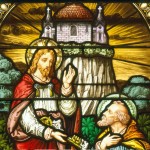 Recently, I’ve noticed people claiming that the Roman Catholic Church is the true Church due to claims about historical succession. Weirdly, often no actual attempt is made to demonstrate from history that such succession exists. Rather, the argument (though not admitted) is from necessity. We need one authoritative Church to be a source of certainty amid competing denominations and doctrines, therefore this one that makes such a claim must be this church, despite the problems in their actual historical documentation.
Recently, I’ve noticed people claiming that the Roman Catholic Church is the true Church due to claims about historical succession. Weirdly, often no actual attempt is made to demonstrate from history that such succession exists. Rather, the argument (though not admitted) is from necessity. We need one authoritative Church to be a source of certainty amid competing denominations and doctrines, therefore this one that makes such a claim must be this church, despite the problems in their actual historical documentation.
This sort of argument is weirdly Puritanish. Recall Richard Hooker’s conclusion regarding the puritan critics of the Anglican church, who insisted that a specific form of government for the Church had been explicitly given in Scripture. (I am convinced that Presbyterianism is the most consistent application of Scriptural principles to Church polity–as opposed to Hooker’s episcopal beliefs. But I do share Hookers amazement at some of the claims that are made on behalf of Presbyterian government.) The following is from Book 3, Chapter 11, section 21:
As for those marvellous discourses whereby they adventure to argue that God must needs have don the thing which they imagine was to be done; I must confess I have often wondered at their exceeding boldness herein. When the question is whether God have delivered in Scripture (as they affirm he hath) a complete, particular, immutable form of church polity, why take they that other both presumptuous and superfluous labour to prove he should have done it; there being no way in this case to prove the deed of God, saving only by producing that evidence wherein he hath done it? But if there be no such thing apparent upon record, they do as if one should demand a legacy by force and virtue of some written testament, wherein there being no such thing specified, he pleadeth that there it must needs by, and bringeth arguments from the love or goodwill which always the testator bore him; imagining, that these or the like proofs will convict a testament to have that in it which other men can no where by reading find. In matters which concern the actions of God, the most dutiful way on our part is to search what God hath done, and with meekness to admire that, rather than to dispute what he in congruity of reason ought to do. The ways which he hath whereby to do all things for the greatest good of his Church are more in number than we can search, other in nature than that we should presume to determine which of many should be the fittest for him to choose, till such time as we see he hath chosen of many some one; which one we then may boldly conclude to be the fittest, because he hath taken it before the rest. When we do otherwise, surely we exceed our bounds; who and where we are we forget; and therefore needful it is that our bride in such cases be controlled, and our disputes beaten back with those demands of the blessed Apostle, “How unsearchable are his judgments, and his ways past finding out! Who hath known the mind of the Lord, or who was his counsellor?” (Rom 11.33-34)
The two cases are different in many ways, but both impulses seem to depend upon a demand for a kind of “perfection” that somehow must be true despite all evidence to the contrary.
Jesus left us with an actual church, not an ideal one. We need to be faithful and, in a certain sense, satisfied with what he has left us.

On patience with the Church
 Sometimes, some things I teach, and that people whom I respect teach, are labeled “ecclesiocentrism.” Whether or not I own that label depends on what exactly it is supposed to entail. I can certainly imagine really bad ideas going by that label, so I don’t think it is a helpful generalization.
Sometimes, some things I teach, and that people whom I respect teach, are labeled “ecclesiocentrism.” Whether or not I own that label depends on what exactly it is supposed to entail. I can certainly imagine really bad ideas going by that label, so I don’t think it is a helpful generalization.
But it is true that Jesus established a church, with officers, boundaries, and/or structures, that is distinct from other institutions such as the civil magistrate (submerged in or masquerading as “the state” in most modern thinking) and the family.
(Again, this is a thoroughly modern way of looking at society/ies. At the time the church began as a distinct entity from Israel and/or Judaism, it was established as distinct from families (nuclear, to the extent that those mattered to anyone), clans, tribes, language groups, dynasties, and/or races, etc. The fact that we in the modern West think so simply as to only consider “State, Church, and Family,” is a gift of the Great Commission.)
And it is also true, in a way analogous to how Israel related to the other nations and the foreign empires, that the Church is called to be a source of life to the other institutions.
But it would be false, to infer from this that the Church is always the ideal institution at any or every point in history and in every place on earth. It is not.
Look at Paul’s letters to the Corinthians. One can find some fantastic affirmations about the Church. One also finds an actual church that is in doctrinal, ethical, and social chaos. It stinks.
Here is another example:
So I exhort the elders among you, as a fellow elder and a witness of the sufferings of Christ, as well as a partaker in the glory that is going to be revealed: shepherd the flock of God that is among you, exercising oversight, not under compulsion, but willingly, as God would have you; not for shameful gain, but eagerly; not domineering over those in your charge, but being examples to the flock. And when the chief Shepherd appears, you will receive the unfading crown of glory. Likewise, you who are younger, be subject to the elders. Clothe yourselves, all of you, with humility toward one another, for “God opposes the proud but gives grace to the humble.” Humble yourselves, therefore, under the mighty hand of God so that at the proper time he may exalt you, casting all your anxieties on him, because he cares for you (1 Peter 5:1-7 ESV).
Here we have a model of Church behavior that could easily be romanticized. But if we look at the sequence of Peter’s statements as related to one another: then what is the Apostle saying about life in the Church:
He is saying that life in the Church is a source of anxiety. It is frustrating being an elder and it is frustrating being under elders. It doesn’t seem like the best thing in the world to humble oneself in either role. It is something you have to endure by faith. You have to trust that God cares for you and you have to turn to him in prayer about the constant worries caused by the others.
That’s the church.
Which is why, “ecclesiocentrism,” as it often is a form of utopianism, is a dangerous thing. And it is a much more widespread phenomenon than is often recognized. “Getting back to the New Testament Church” is often presented as some kind of return to an ideal community where harmony and peace abound.
But read the New Testament and stop encouraging unrealistic expectations in yourself and others. The church may be “central” and the “the New Testament” (which is a fictional construct, by the way, but I’m not sure how to single-handedly reform our language and concepts on this blog) may give us a pattern we need to imitate. But those truths need to be distinguished from such unreachable expectations. (These are similar to the expectations placed on marriage, that lead to divorce).
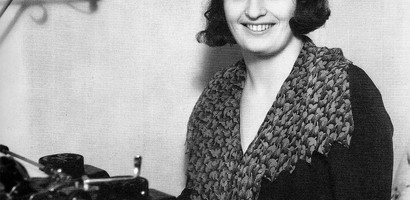
On the anti-Ayn-Rand schtick
 I heard once of a Christian kid who became an atheist of the Ayn-Rand kind. This blew my mind. I couldn’t believe that anyone with real Christian knowledge would be swayed by her assertions (on atheism, it is too kind to call them arguments).
I heard once of a Christian kid who became an atheist of the Ayn-Rand kind. This blew my mind. I couldn’t believe that anyone with real Christian knowledge would be swayed by her assertions (on atheism, it is too kind to call them arguments).
So if I had known that person, or if it was ever to happen to someone I know, perhaps I will shift in my present stance.
But for now, my present stance is that most of the Christian attacks on Ayn Rand are posturing and pretentious. Not as much as she was, I guess, but with less virtue to compensate for the vice.
Yes, Ayn Rand was a materialist atheist. Yes, atheism is opposed to Christianity. Telling us that Atheism is opposed to Christianity is not worth the typing it takes to write the sentence. We know this already.
If you want to see Christian appropriations of Ayn Rand, you should read Herbert Schlossberg’s Idols for Destruction. A few of his appropriations are worth ten times all the ranting refutations put out by people claiming to be intellectual.
And if you want to see her refuted, you will learn more of value by reading her fellow atheist (or at least agnostic) Murray Rothbard. Granted, Rothbard, has an axe to grind (for good reason). But he did, at one point, sincerely admire her and try to interact with her. That is better than just about an Christian’s attack.
I find it appalling, that one can be considered intellectual in Christian circles to be acquainted with Marx, or Nietzsche, but somehow appreciating some aspects of Ayn Rand’s thought is outside the boundaries.
I’ll agree that Rand is somewhat immature. I don’t own any of her works any more. But in college I read most of them. I couldn’t finish The Fountainhead because I think “no means no” and not even Howard Roark should guess that she really wants it. But I read the rest of her fiction, including her play, “The Night of January 16th.” And I read many, many of her essays.
And I remember distinclty that in several of them, she defended traditional Christians from Liberal theology. She could tell the difference and saw in Liberalism an enemy of real thinking. In many cases, reading her was like reading H. L. Mencken’s obituary of J. Gresham Machen.
Yes, I think Mencken was an amazing genius and a brilliant writer, even if he wasn’t brilliant as he thought he was. And I read Camille Paglia,. And I think Justin Raimondo is the greatest American columnist alive today. (Actually, I don’t think it. It is simply a fact.)
I suppose all those opinions call forth for some Christian “world view analysis” to tell me who is a pervert and who an atheist and on and on.
People act as if the recognition of Ayn Rand’s genius (with her blindness) is some sort of right wing bias. It is the critics who usually reveal they are not so much defending God as the state.
Revisiting Mark 2: the pattern and the callings
So, if you saw my last post on Mark, Revisiting Mark: the pattern, you saw a case for a pattern to the healings in Mark’s Gospel’s. But the full meaning of this pattern won’t be clear without considering the callings.
The Victory According to Mark: An Exposition of the Second Gospel
Click on image to go to publisher website
Buy from Amazon | Buy on Barnes & Noble | Google Books
Jesus’ first calling is by the sea. He calls four fishermen to abandon their work and follow him. Since, fishermen working by the sea doesn’t seem that odd, one might not think much about the detail. But then comes the calling of Levi:
He went out again beside the sea, and all the crowd was coming to him, and he was teaching them. And as he passed by, he saw Levi the son of Alphaeus sitting at the tax booth, and he said to him, “Follow me.” And he rose and followed him.
(Mark 2:13-14 ESV)
In this case the fact that their by the sea seems to be a detail that has no real significance. But it serves to link this calling with the previous calling.
And it fits in the pattern I set down in my last post:
Exorcism, Cure, Cleansing, Cure-Feet –> Cure-Hand
Notice how the healings work with the callings:
Call 4 by name : Heal 4 people –> Call 1 by name : heal 1 person
I will demonstrate (to your satisfaction, I hope) that each line of miracles has a calling attached to the first healings and then to the complementary miracle. Jesus calls four and heals four ending with a paralyzed man walking (feet) and then he calls one and heals one withered hand. This is the pattern for all.
But the next calling also covers all the rest of the healings in the Gospel:
Jesus withdrew with his disciples to the sea, and a great crowd followed, from Galilee and Judea and Jerusalem and Idumea and from beyond the Jordan and from around Tyre and Sidon. When the great crowd heard all that he was doing, they came to him. And he told his disciples to have a boat ready for him because of the crowd, lest they crush him, for he had healed many, so that all who had diseases pressed around him to touch him. And whenever the unclean spirits saw him, they fell down before him and cried out, “You are the Son of God.” And he strictly ordered them not to make him known.
And he went up on the mountain and called to him those whom he desired, and they came to him. And he appointed twelve (whom he also named apostles) so that they might be with him and he might send them out to preach and have authority to cast out demons. He appointed the twelve: Simon (to whom he gave the name Peter); James the son of Zebedee and John the brother of James (to whom he gave the name Boanerges, that is, Sons of Thunder); Andrew, and Philip, and Bartholomew, and Matthew, and Thomas, and James the son of Alphaeus, and Thaddaeus, and Simon the Zealot, and Judas Iscariot, who betrayed him.
(Mark 3:1-19 ESV)
Only seven more are called, but Levi is given a new name. So we have eight new names called and, for the rest of the Gospel, we have eight more healings.
That makes thirteen healings. If that number makes you uncomfortable, then consider Jesus called first in his baptism by John. Then his own resurrection makes the fourteenth healing.
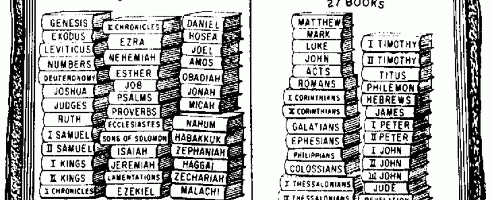
The Bible has authority, even the “New Testament.”
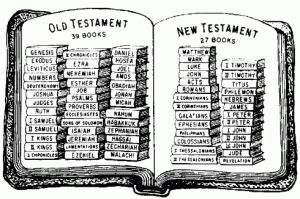 I recently read a generally excellent book but something struck me as wrong. The book affirmed one must believe in the authority of Scripture, “especially the New Testament.” What can such a statement possibly mean?
I recently read a generally excellent book but something struck me as wrong. The book affirmed one must believe in the authority of Scripture, “especially the New Testament.” What can such a statement possibly mean?
At best, the authority of the NT can be contrasted with the Old if what is intended is direct applicability. The story of Abraham being given a covenant of circumcision is revealed to us with just as much authority as the Great Commission and the command to baptize, but Christians heed the authority of the Great Commission by baptizing disciples, not by circumcizing them.
Nevertheless, it is confusing to make a blanket statement about Biblical authority and then say, “especially the New Testament.” Consider our most obvious prooftexts for the authority of the New Testament:
And count the patience of our Lord as salvation, just as our beloved brother Paul also wrote to you according to the wisdom given him, as he does in all his letters when he speaks in them of these matters. There are some things in them that are hard to understand, which the ignorant and unstable twist to their own destruction, as they do the other Scriptures (2 Peter 3:15-16 ESV).
Let the elders who rule well be considered worthy of double honor, especially those who labor in preaching and teaching. For the Scripture says, “You shall not muzzle an ox when it treads out the grain,” and, “The laborer deserves his wages” (1 Timothy 5:17-18 ESV).
What is the argument here? “Scripture” is a term used throughout the “New Testament” for what we call “the Old Testament”–the Hebrew Scriptures. In these two passages we find other “New Testament” writing being included as “Scripture.”
In other words, we never see any question about whether or not the “Old Testament” is especially authoritative. That is simply an understood premise. But what we find in these two cases is evidence that the “New Testament” is just as authoritative as the “Old Testament.”
How do we go from “New Testament” teaching that it is just as authoritative as the “Old Testament,” to saying that the Bible is authoritative, “especially the New Testament”?
I don’t see how that works.
Personally, I wish we would throw out the terms “Old Testament” and “New Testament” altogether.
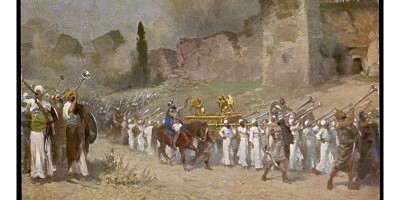
The Greater Miracle
Situation seems hopeless. Needs are overwhelming.
Why doesn’t God act? Why doesn’t he change everything around?
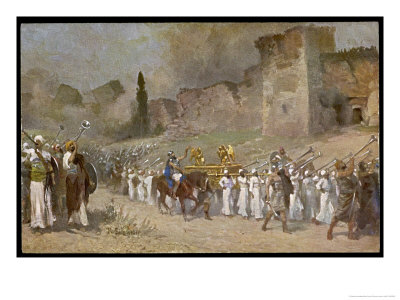 But he doesn’t. And when we think about this, it is all over the Bible. God knocks down the walls of Jericho, but then there are plenty of other battles that are won or lost on strategy and numbers. Jesus calms the storm for his disciples, but makes Peter suffer through one to the point of swimming for his life. The disciples are miraculously rescued from prison but only after they have been captured and beaten.
But he doesn’t. And when we think about this, it is all over the Bible. God knocks down the walls of Jericho, but then there are plenty of other battles that are won or lost on strategy and numbers. Jesus calms the storm for his disciples, but makes Peter suffer through one to the point of swimming for his life. The disciples are miraculously rescued from prison but only after they have been captured and beaten.
God’s power and glory is displayed in amazing and impossible deliverances. If that was all that mattered to Him, perhaps we would see more of them.
But what if God is concerned with our glory? What if he wants us to do amazing things? What if his ultimate miracle is the way he changes us by Christ and the Spirit to do works beyond our imagining? And what if the greater “miracle” is that these things are accomplished by “natural” means–us.
And these things, seemingly impossible, would be nauseating to contemplate. We would never do them were we not confronted with impossible situations for which we pray for deliverance. And then pass through them and find the deliverance arrives in doing so…
We pray for God to do great things and yet perhaps his greater miracle is to lead us to do great things.
Revisiting Mark: the pattern
![]() Here’s the deal with Mark’s miracle stories: While he has some summary statements, his narrations are always about one and only one person being healed. No story of ten lepers. No stories of two blind men (in fact, he drops them out of Matthew’s account).
Here’s the deal with Mark’s miracle stories: While he has some summary statements, his narrations are always about one and only one person being healed. No story of ten lepers. No stories of two blind men (in fact, he drops them out of Matthew’s account).
So consider Mark’s last five healing miracles. Exorcism (7.24-30), Cure (7.31-37), Cure (8.22-26), Exorcism (ch 9.14-28), Cure (10.46-52).
But if we look at these details a bit closer something seems less than random: Exorcism of an unclean spirit (7.24-30), Cure of a deaf mute (7.31-37), Cure of a blind man (8.22-26), Exorcism of an unclean spirit that causes deafness and muteness (ch 9.14-28), Cure of a blind man (10.46-52).
So:
- Exorcism, Deaf Mute –> Blind
- Exorcism of Deaf Mute –> Blind
So is this a coincidence. Did Mark just happen to write in a way where the elements repeated and consolidated?
Now lets look at this with the rest of the miracles, starting in Mark chapter 1:
- Exorcism, Cure, Cleansing, Cure-Feet –> Cure-Hand
- Exorcism, Cure-Cleansing –> ???
- Exorcism, Deaf Mute –> Blind
- Exorcism of Deaf Mute –> Blind
Let me explain a bit. Take the first line:
Exorcism, Cure, Cleansing, Cure-Feet –> Cure-Hand
The first cure is the raising of Simon’s mother-in-law. The next is the healing of the paralytic so he can walk. Then we have the restoration of the withered hand.
Feet then hands. This matches the end of the last two lines, the last five healings: ears and mouth, then eyes.
Jesus is restoring a complete person:
Their idols are silver and gold,
the work of human hands.
They have mouths, but do not speak;
eyes, but do not see.
They have ears, but do not hear;
noses, but do not smell.
They have hands, but do not feel;
feet, but do not walk;
and they do not make a sound in their throat.
Those who make them become like them;
so do all who trust in them.
(Psalm 115:4-8 ESV)
So why the move from body to head?
That brings us to the two healings, the cure-cleansing, in the second line:
Exorcism, Cure-Cleansing –> ???
Mark seems to have an aversion to any odd number beside 1. He gives us the story of the raising of Jairus’ daughter and puts, in the middle of it, the story of the cleansing of the woman with the issue of blood. These two women are quite obviously correlated. Both are called “daughter.” One is twelve years old and one has been unclean for twelve years. They would be an obvious match even if we didn’t know from Leviticus that the spreading dominion of death is the story behind the problem of uncleanness in Israel.
(A further comment. The stories follow each in cut time, 1-2-1-2… The exorcisms are always of “unclean spirits” thus making them the counter parts to the cleansings of the “leper” (a skin affliction that was not the modern disease of that name and probably wasn’t even contagious). and the cleansing of the woman with the the issue of blood.)
But the bottom line is: once you tell about a resurrection, what possible story can serve to “complete” the picture? Mark can tell us about a restored hand after a man is made to walk, or restored eyes after a man is made to hear and speak. But resurrection is an act that can’t be followed.
Thus, the move from body to head. This allows him to keep building to the final exorcism/cleansing/curing–the resurrection of Jesus.

